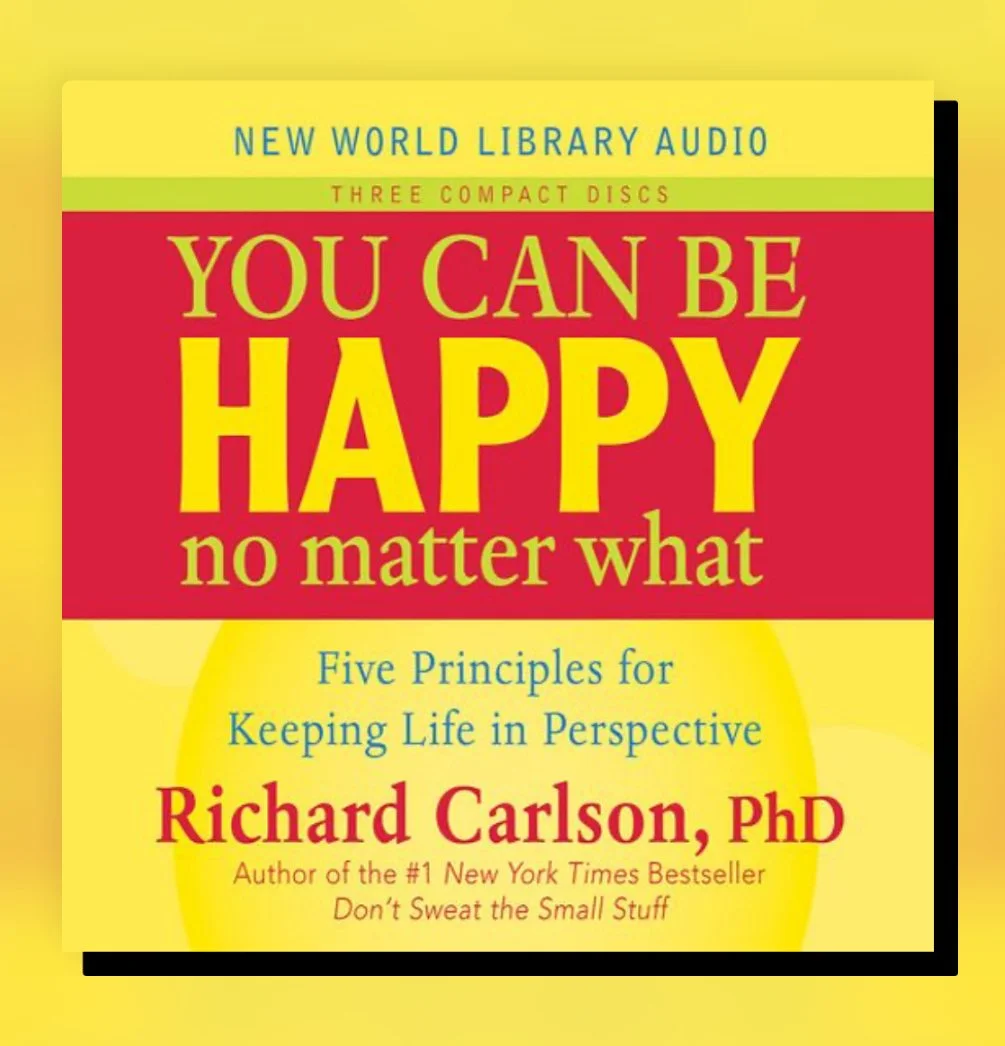You Can Be Happy No Matter What: Five Principles for Keeping Life in Perspective (1997) by Richard Carlson, PhD
By introducing us to his Five Principles of Psychological Functioning, Richard Carlson, PhD is encouraging the reader to feel more empowered to take responsibility for obtaining happiness by re-framing our approach from something we achieve (by neutralizing negative external factors) to a state of mind:
Thinking
Moods
Separate Psychological Realities
Feelings
The Present Moment
The five principles help us gain a better understanding of our how mind works in order to increase our access to happiness, thereby having a positive effect on expanding our perspective on our life and our relationships so that we can learn how to be able to feel contented even if our life isn’t perfect (which, let’s be honest, is damn near impossible).
The book starts out strong and has a lot of good points, but is antiquated in its rigid approach and its narrow scope. While Dr. Carlson does cite quotations from authors and philosophers alike, I never noticed him citing any research to support his claims of causation rather than correlation. I found many of these claims to be a bit dangerous and irresponsible. That being said, the book was published in 1997, so it is old (and antiquated).
How did I hear about this book: a client recommended it to me
Would I recommend it to colleagues: I would encourage colleagues to read it if their client is reading it so they can support a well-rounded dialogue.
Would I recommend it to clients: No. There are many other books that do a better job of communicating these points that I’d recommend first.
How do I apply this content to my work: I can appreciate how the client that recommended this book to me made the connection between our work together and the points in this book, as it does make some valid points about how re-framing our perspective (and getting out from under our negative core beliefs) can help us increase our tolerance for daily stressors and be able to enjoy the bigger picture. There is some overlap with Polyvagal theory that encourages the understanding of our neurobiology to give us a sense of agency and empowerment to own our happiness rather than as something we have to earn or achieve by mitigating or controlling external factors. By shifting our energy and attention to ourselves and achieving an internal sense of safety, rather than trying to focus our attention on whack-a-mole-ing all of our stressors, we are able to conserve our resources… we are able to let go… we are able to find more ease and contentment in our lives.
If you live in the state of Washington and are looking for some support at connecting with this internal sense of happiness and contentment, I may be able to help. Contact me and let’s schedule a free 15-minute consultation to talk more.




